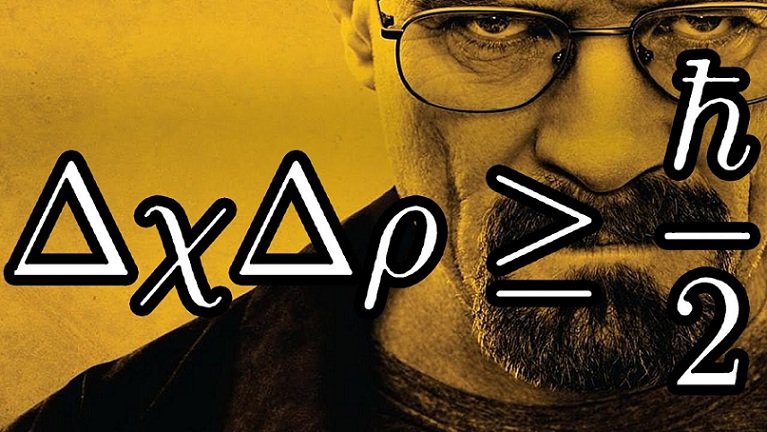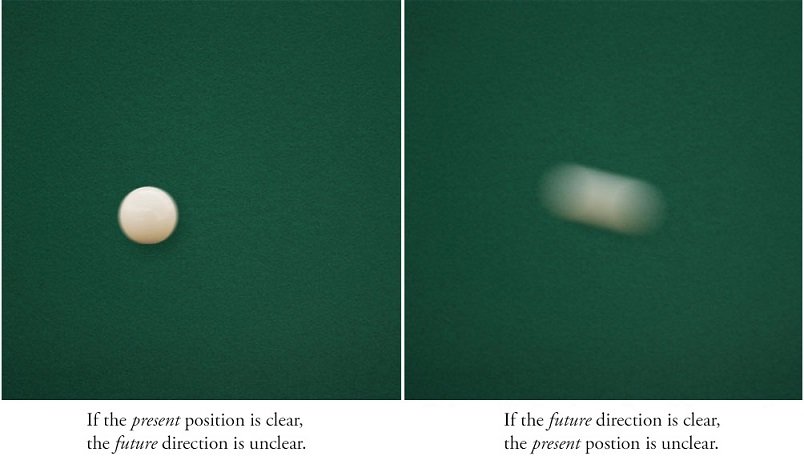If determinism is true, we would theoretically be able to figure out the fate of anyone, provided that there was precise knowledge of everything that ever affected a person and had an overall description of all the molecules and the condition they are in initially. Something called Heisenberg's uncertainty principle is often used in attempts to falsify this claim. It basically shows that nothing can be observed without the viewer somehow influencing what is observed, on an atomic level.

All cells of the body can be reduced to a description of their elements, molecules and atoms. All processes in the body can be described by chemistry and physics. On the molecular and atomic level the processes are described by quantum physics. As I mentioned, there is a well known concept in quantum physics called Heisenberg's uncertainty principle, introduced first in 1927 by the German physicist Werner Heisenberg. A variant of this says that you can't simultaneously determine a particle's position and speed with arbitrary accuracy. In order to predict the continued direction of a particle, say an atom, knowledge of the atom's present location and condition is required. If one wants to find both its position and speed one is met by a limitation. When one examines the speed of the atom, one will notice that by doing this one has also affected its position. Attempting to find the atom's position affects the speed, whether you like it or not.
This allows for a particle (atom, electron or even molecule) to be located in a place that can't be predicted. This in turn implies that a process at the atomic level may be unpredictable. An active choice is a thought process that in theory can be described by the underlying processes that ultimately depends on quantum physical phenomena. It would suffice that a single particle randomly changes its state to determine a certain specific choice. It's then impossible to predict which choice will be made.
If the uncertainty principle sounds complicated let me give you an example. Imagine a bomb connected to a detector that registers radiation. When the detector detects the radiation the bomb is triggered. Furthermore, the detector is encased in a thick lead casing, so that ambient radiation can't enter. We then place a small amount of low-level radioactive material pm the inside of the casing. When an atom in the material decays it sends out radiation, which the detector registers = the bomb explodes. The catch is that there's no way to figure out when the bomb will explode. If you have a very small amount of the radioactive substance (perhaps 10-100 atoms) and it has a long half-life, it can take anywhere from a fraction of a second to hours, days or years. All we can do is to figure out the probability of when it occurs, but in reality no one can know exactly when.

The implications of this is that the universe might not at all be deterministic, but that there is a fundamental unpredictable randomness of the most basic construction of reality. It's not possible to know the absolute speed of a particle and at the same time to know its position. It's an 'either or' thing. Something that seems to be a physical impossibility.
Then I wonder... does this affect our thinking and decision making in any way? Can a small quantum jump in our brain change a thought, seemingly unpredictable on a tiny level, which then creates a snowball effect with real consequences? Or is it too tiny have an affect on our synapses?
Without having any formal knowledge, I would say yes, probably our brain cells are far too large to be affected by this phenomenon. But, is the uncertainty principle really supporting claims of free will? I think it's a bit weird to maintain that chance on an atomic level gives us free will. In such case you have probably misunderstood chance.
Chance on a quantum level rather backs determinism, since it's something we can't influence. How do we know that causality doesn't apply to quantum physics? All we know is that we don't know, so we have to resort to statistics.
Some people use Heisenberg's uncertainty principle as final proof of there being uncertainty 'built into' our universe. But I say it only means that the world and our universe is unpredictable from an observer perspective and our limited view. Determinism still stands.
